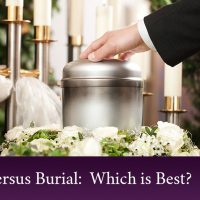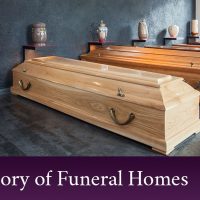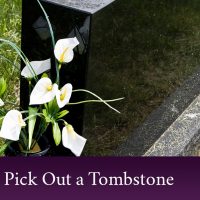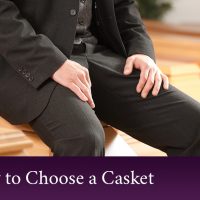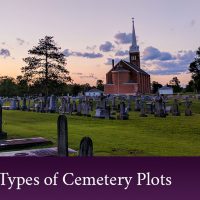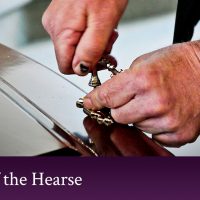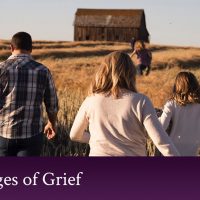
Dealing with the death of a loved one is emotionally trying, usually devastating, and an extremely sorrowful time in your life. In the immediate afterwards, you’re busy with funeral arrangements, such as arranging funeral visitation, burial service, picking out caskets, planning a caterer for the celebration of life ceremony, and the actual day of burial. You’re also still in the first stages of grief and dealing with denial and anger. However, soon the details of your loved one’s death takes root: obtaining a death certificate, contacting all of your banks and financial institutions, including debt obligations your loved one had, and trying to negotiate the legalities of death. It can be overwhelming.
Dolan Funeral Home in Chelmsford can help. We offer aftercare support services to help you with the legalities and paperwork when your loved one dies. Below, we’ll examine some of the immediate affairs of death you’ll have to process once your loved one has been buried. Contact us today for the best funeral home services in the greater Lowell area!
LEGALITIES AND PAPERWORK AFTER THE DEATH OF A LOVED ONE
- A legal pronouncement of death. Unfortunately, in today’s society known for scams, you’ll need to prove that your loved one is dead. This usually entails obtaining a death certificate signed by a medical professional that will state the date, time, location, and manner of death. This legal death certificate issued by the government is necessary for accessing pension benefits, claiming life insurance, settling estates, and getting remarried. This is usually issued straight away after the death of the loved one because a death certificate is needed in order for the remains to be either buried or cremated. Most crematories and cemeteries require a legal death certificate in order to render services.
- Begin the probate process. Probate is the legal process all estates must pass through (with a last will and testament or without) when a loved one passes, unless your loved one had a revocable living trust. Hopefully, your loved one left behind a will, stating his or her desires on what to be done with property left behind. Depending on the size of the estate and how likely the will may be contested, you may need to contact a probate lawyer in order to help manage the process.
- Notify Social Security. Most funeral homes do contact the Social Security Administration on your behalf; however, if not, you’ll have to contact them to apply for survivor benefits. The Social Security Administration requires a variety of documents, depending on how your loved was related to you, including birth certificate, death certificate, and marriage certificate. Visit their website for the specifics in your case.
Visit and/or send paperwork to all banks, mortgage companies, insurance companies, mortgage broker accounts, credit card companies, and any other form of debt or asset allocation your loved one may have had. You will be required to provide a copy of your loved one’s death certificate, but this will allow you to change the ownership on all of the accounts to yourself. - Contact your accountant. You will have to file a tax return (both federal and state) for both your loved one and the estate. This can be complicated so it’s best to have a professional do this on your behalf. Dolan Funeral Home in Chelmsford maintains a list of professional accountants and estate lawyers we recommend.
- Notify/cancel insurance policies. You’ll have to notify the life insurance company of your loved one’s passing so you can receive the benefits. In addition, you’ll have to cancel car insurance, homeowner’s insurance, and health insurance, so you’re not paying premiums when your loved one is dead. Do note that if your loved one was on Medicare, the Social Security office will inform them of the death, but if your loved one had Medicare Prescription Drug Coverage (Part D), a Medicare Advantage plan and/or a Medigap policy, you will need to call each one individually to cancel coverage.
- Contact your loved one’s employer. If your loved one was working, chances are he or she had a small life insurance policy that the company sponsored that will need to be paid out. Again, you’ll need a copy of the death certificate to get this process rolling.
- Check all the bills. Any bills that was in your loved one’s name, such as utility bills, trash bills, internet, cable, or even a prescription music service, will need to be either cancelled or put into your name if you are continuing the service.
- Close credit card accounts. This is a very important step to prevent fraud. Since your loved one is no longer around to monitor his or her credit card activity, closing all accounts and settling all monies owed is the best way to prevent any identity theft and unauthorized use of your loved one’s credit cards. A death certificate will usually be required to close each account, which you’ll have to contact individually and find out about their process for deceased persons.
- Notify the three major credit reporting agencies. Transunion, Equifax, and Experian will all need to be notified of your loved one’s passing. This will not only prevent identity theft of your loved one’s credit but will also help clean up your credit since his or her name will be removed from any joint accounts you may have held.
- Cancel your loved one’s driver’s license. Those looking to steal other’s identities troll obituaries as those who have passed are great candidates for identity theft since the deceased is not monitoring his or her credit (these criminals look at obituaries in their areas for victims). You’ll need a copy of your loved one’s birth certificate to take to the DMV. Cancelling your loved one’s voter registration is also a good idea to prevent voter fraud (someone voting on behalf of your deceased loved one).
- Notify your loved one’s social media. If your loved one was active on social media or had a blog, notify them of your loss. Oftentimes, social media becomes a great way to memorialize your loved one as condolences pour in from followers and those who cared about your loved one from afar.
- Close online accounts. Email is another target of online predators who can use a loved one’s email account to perpetrate fraud activities, such as soliciting for funds from acquaintances. Any other accounts your loved one might have used, such as online music streaming accounts, ongoing services such as massage therapy, or monthly donations to nonprofits or churches, should be stopped as well.
- Tie up loose ends. For months, things will crop up that you’ll have to deal with, such as unexpected accounts you didn’t know your loved one had. When these occur, just deal with them as they arise without undue stress on your part.
Death, as much as a part of life it is, is never easy to deal with nor anticipate. The antithesis of birth, death is characterized by sorrow and grief, which, while normal, is still not pleasant to go through.
HOW DOLAN FUNERAL HOME CAN HELP
As you can see, there is a lot to be done once your loved one passes — many things that you would just not think of to do. Dolan Funeral Home in Chelmsford understands the hardships of death. We serve hundreds of families in the greater Boston area, including communities such as Lowell, southern New Hampshire, Chelmsford, N. Chelmsford, Tyngsboro, Westford, Dunstable, Tewksbury, and Dracut with funeral, burial, and cremation needs every year. We understand the grieving process and that everyone walks through grief a bit differently.
A family-owned business since 1974, we saw the need for an aftercare program, which we’ve developed, to help families navigate the seemingly endless amount of paperwork and activities associated with the death of a loved one. For the first year after the death of your loved one, we’re available to offer guidance and point you in the right direction when it comes to all your paperwork needs. We work with very reputable lawyers, counselors, and other services to ensure you get the help you need during this very difficult transition time in your life.
Dolan Funeral Home in Chelmsford is a full-service funeral home that offers care for your deceased loved one from the moment he or she is released by the medical examiner until the burial service. We offer pre-arrangement funeral planning services as well, which is utilized while your loved one is still alive. This eases the grieving process as the major decisions about burial service is already made. We are proud to partner with local businesses to offer catering for your funeral reception, which provides funeral food and a chance to remember your loved one comfortably.
Furthermore, having been in business for over forty-five years, the staff at Dolan Funeral Home is a resource for you, whether you just need advice on which casket or urn to choose or just need an ear to listen to your remembrances. Dolan Funeral Home not only meticulously cares for your loved one, but we also care for those left behind. We are grateful and humbled that you have chosen us for this very important task. Visit us today!

